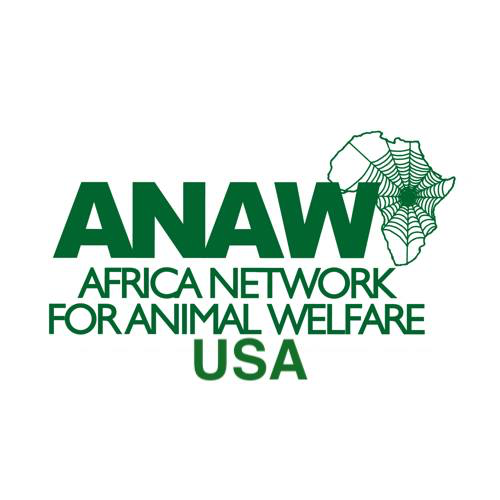
Africa Conservation Education Fund
Providing access to quality education for marginalized youth living in wildlife areas
At ANAW & ANAW-USA, we recognize that education is at the heart of any lasting social change. Through our Africa Conservation Education Fund (ACEF), we sponsor primary, secondary, and tertiary education for marginalized youth from the Indigenous Watha community who reside at the boundary of Tsavo East National Park in Kenya. Our intention is to create access to quality education as a way to ensure that these children have the skills, knowledge, and pathways to opportunity necessary to establish secure livelihoods that are at peace with the wildlife they live amongst.
ACEF Background
Africa Network for Animal Welfare (ANAW)’s mission is to work with communities, governments, partners, and other stakeholders across Africa to promote the humane treatment of animals. It recognizes the rights of indigenous communities and the important role they play in the conservation of natural resources. These communities are historically known to have a culture that revolves around nature.
The pledge to leave no one behind as is contained in the 2030 Agenda for Sustainable Development highlights fundamental inequalities in education and poverty levels that result in socio-economic exclusion across varied contexts. Remote rural areas indicate a dire need for educational support through the creation of conducive learning environments and the expansion of access to education, particularly for children from poor or otherwise marginalized families.
In response to this challenge, and under Africa Network for Animal Welfare (ANAW)’s strategic area of human-animal coexistence, Africa Conservation Education Fund (ACEF) was initiated to address such inequalities through community engagement and education. The program was started in September 2019 to conserve wildlife by empowering local communities living in wildlife areas through educational support, vocational training, and entrepreneurial skills development for youth.
The Watha Community
Most communities that live in or near wildlife areas in Kenya have largely been excluded from quality education. To address this, the first target community for ACEF engagement is the Watha, specifically living near the Tsavo East National park, in Shirango village, Ganze, Kilifi County.
This community is confined to an area just outside of the protected Tsavo East National Park, where they had historically based their livelihoods as hunters and gatherers. Their dependence on honey, firewood, and bushmeat has been challenged in post-colonial Kenya, such that their community is now characterized by youth unemployment and poverty.
Young, school-aged children often delay starting school because of the long distance to school and the added risk of encountering wildlife in the 15-20 km stretch to the only school in the area: the Jira Primary School located in Ndarako Village. Family poverty also means that some children in the community cannot raise the USD $0.7 exam fee. While the Kenyan Government covers the tuition cost of primary school, many families in the marginalized Watha community are unable to cover the costs of supporting their children’s learning through secondary and tertiary school, and some students hardly attend school or drop out altogether because of their family’s inability to pay for school fees, uniforms, and other educational resources.
How We’re Helping
Through scholarships and the creation of effective learning environments, we work to counter educational exclusions, improve school access and attendance, and increase student and community investment in educational outcomes - ultimately creating pathways to more secure, sustainable livelihoods for the Watha community.
Through our sponsorships and scholarships, we hope to see:
Increased educational opportunities for poor children from the marginalized Watha community
Increased enrollment of children from the marginalized Watha community into secondary schools
Improved rates of transition from secondary school to tertiary institutions
The program also benefits the large population of out-of-school, unskilled, and unemployed youth of the Watha by supporting income generating activities and providing economic sustenance. Through bursaries for vocational training, unemployed youth will be empowered to develop alternative sources of income, diverting the need for participation in bushmeat trade, poaching, charcoal burning, and other ecologically harmful activities.
The Difference Your Contribution Can Make
Primary School
17 USD will keep a child in pre-school for a year.
13 USD will keep a child in lower primary school for a year.
14 USD will keep a child in middle school for a year.
15 USD will keep a child in upper primary school for a year.
120 USD will pay for 8 years of education for a pupil in primary school.
Secondary School
150 USD will keep a secondary school student in day school for a year.
405 USD will keep a secondary school student in boarding school for a year.
600 USD will pay for 4 years of secondary school education for a student in day school.
1,620 USD will pay for 4 years of secondary school education for a student in boarding school.
Tertiary Learning
510 USD will pay for one year of vocational training in college for one youth.
1,200 USD will pay fees for a university student for one year.
Give A Desk Campaign
One of the most tangible contributions you can make to support the learning and education of the Watha youth is to Give A Desk.
In Jira Primary School, children in
lower primary school habitually learn while seated on stones or on the dirt floor because they do not
have desks. For these children that we seek to support through ACEF, sitting on a stone for several hours of classroom instruction is
tedious and uncomfortable, yet their desire for learning overrides their discomfort.
They curve their backs to write in exercise books which are placed on their laps.
Most of the children at Jira Primary School come from poor and marginalized families. Having a desk to sit at and write upon would make the
classroom environment significantly more conducive for learning and instruction, and would allow students to enjoy their educational
experience in a comfortable working space.
Our Goal
Our Give A Desk campaign aims to provide 350 desks for students at the Jira Primary School in Kenya. Each desk will seat two students and costs roughly 50 USD each. Please join us in providing an improved learning environment for children in these communities as they learn to explore their full potential!






